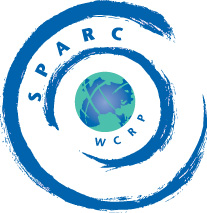 |
Stratospheric Processes And their Role in Climate
|
||||||||
| Home | Initiatives | Organisation | Publications | Meetings | Acronyms and Abbreviations | Useful Links |
![]()
 |
Stratospheric Processes And their Role in Climate
|
||||||||
| Home | Initiatives | Organisation | Publications | Meetings | Acronyms and Abbreviations | Useful Links |
![]()
Brief Report on the START Young Scientists Conference on Global Change
Trieste, Italy, 17-19 November, 2003
The conference and its aims were to stimulate competition, encourage excellence, reward outstanding performance, encourage the development of personal and institutional networks, and at the same time indulge in high-level capacity building among young scientists from both developed and developing countries.
In every way the conference was a resounding success. The endeavour stemmed from the Earth System Science Partnership (ESSP) Open Science Conference on Global Change held in Amsterdam in July 2001, when the ESSP, comprising the IGBP, WCRP, IHDP and DIVERSITAS, asked START to organize a high-level international conference for young scientists of 35 years old and younger. An organizing committee comprising three young scientists, K. Ross of South Africa, R. Pongracz of Hungary and A. Freise of START, planned the conference under the Chairmanship of P. Tyson. Over 1000 submissions were received and finally, 51 young scientists were selected for 15-minute oral paper presentations and 31 for 2-minute oral poster presentations, the standards of content and presentation being outstanding.
The winner of the Crutzen Award for the Best Paper was G. Pineiro of Universiy of Buenos Aires, Argentina, for his paper “Long term grazing impact on soil carbon and nitrogen pools in South American grassland” co-authored by J.M. Paruelo, E.G. Jobbagy, M. Oesterheld and R.B. Jackson.
The award of Best Poster went to S. Marquart of DLR Oberpfaffenhofen, Germany, for her poster “Future development of contrail cover, optical depth and radiative forcing: impact on increasing air traffic, alternative fuels and climate change” co-authored by M. Ponater, R. Sausen and funded by the International START Secretariat.
The conference met all its aims, making it an outstanding success and generated great enthusiasm and camaraderie. The fact that so many young global change scientists from developing countries were able to compete on merit alone for places at the conference is testimony to the success of more than a decade of research-driven capacity building by START, its sponsors and conference partners. WCRP can well be satisfied with the state of global change science among young scientists and leaders of the future in the WCRP family.
![]()